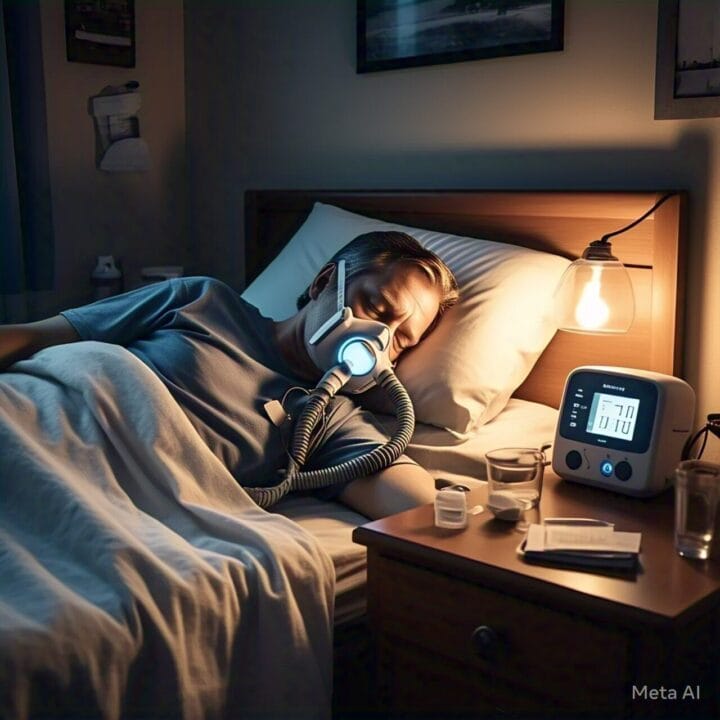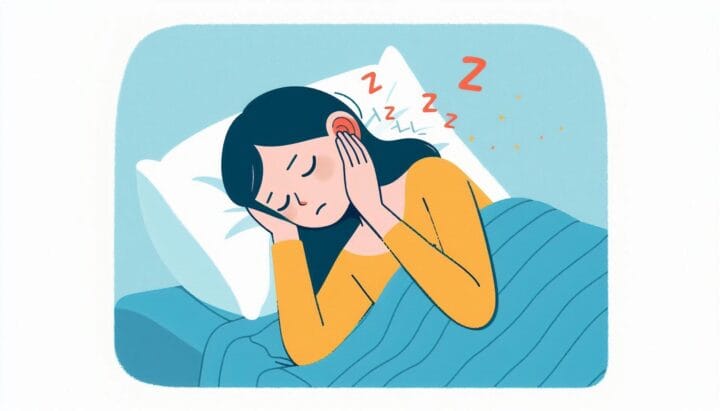Snoring from Deviated Septum
Table of Contents

Snoring from Deviated Septum: Causes, Effects, and Solutions
Ever wake up to your partner nudging you in the middle of the night, complaining about your snoring? You’re not alone. Snoring is a common issue, and sometimes, it’s more than just a noisy nuisance. For many, a deviated septum might be the culprit behind those nocturnal sounds. Let’s break down what this means for your sleep and overall health.
What’s a Deviated Septum, Anyway?
Think of your nose as a house with two rooms, separated by a wall. That wall is your septum. When it’s straight, air flows freely through both sides. But when it’s crooked or off-center, that’s a deviated septum. It’s like having one room bigger than the other, making it harder for air to move through.
How Common Is It?
You might be surprised to learn that about 80% of people have some degree of septal deviation. That’s right – it’s more common than you’d think. Most folks don’t even know they have it.
The Snoring Connection
Why Does a Deviated Septum Cause Snoring?
When your septum is off-kilter, it can create a traffic jam for air trying to pass through your nose. This obstruction forces you to breathe through your mouth, especially when you’re sleeping. And that’s where the snoring comes in.
The Mechanics of Snoring
Snoring is like a mini-concert in your throat. When air can’t flow smoothly, it causes the tissues in your throat to vibrate. The narrower the airway, the louder the snore. It’s like trying to blow air through a pinched straw – you’ll hear that whistling sound.
Beyond the Noise: Health Impacts
Sleep Quality Suffers
Snoring isn’t just annoying for your bed partner. It can seriously impact your sleep quality too. You might not wake up fully, but the noise can pull you out of deep, restorative sleep stages.
Daytime Drowsiness
Poor sleep at night means you’re likely to feel groggy and unfocused during the day. It’s like trying to run a marathon on an empty tank.
Relationship Strain
Let’s face it – snoring can put a strain on relationships. Your partner might lose sleep too, leading to irritability and resentment.
Is It Just Snoring or Something More?
Sleep Apnea: The Silent Threat
Sometimes, snoring from a deviated septum can be a sign of sleep apnea. This condition causes you to stop breathing briefly during sleep. It’s like your body keeps hitting the pause button on your breathing.
When to Worry
If you’re experiencing any of these symptoms along with snoring, it’s time to see a doctor:
- Gasping or choking during sleep
- Excessive daytime sleepiness
- Morning headaches
- Difficulty concentrating
Diagnosing the Issue
The Doctor’s Visit
Your doctor will likely start with a physical exam of your nose. They might use a special tool to look inside your nasal passages. It’s like getting a tour of your nose’s interior.
Sleep Studies
In some cases, your doctor might recommend a sleep study. This involves spending a night in a sleep lab, where they monitor your breathing and sleep patterns. Think of it as a sleepover with lots of wires and sensors.
Treatment Options: From Simple to Surgical
Non-Surgical Solutions
Nasal Strips and Dilators
These over-the-counter options can help open up your nasal passages. They’re like little bridges for your nose, helping to keep things open.
Nasal Sprays
Decongestant sprays can reduce swelling in your nasal passages. But be careful – overuse can lead to rebound congestion.
Lifestyle Changes
Side Sleeping
Sleeping on your side can help reduce snoring. It’s like changing the angle of a hose to improve water flow.
Weight Loss
Extra weight can contribute to snoring. Shedding a few pounds might help ease the issue.
Surgical Options
Septoplasty: The Big Fix
For severe cases, surgery to correct the deviated septum might be necessary. This procedure, called septoplasty, straightens the septum. It’s like renovating your nose to improve airflow.
Living with a Deviated Septum
Managing Day-to-Day
Even if you’re not ready for surgery, there are ways to manage your symptoms:
- Use a humidifier to keep your nasal passages moist
- Practice good sleep hygiene
- Avoid alcohol before bed
When to Seek Help
Don’t ignore persistent snoring, especially if it’s affecting your quality of life. A visit to an ENT (Ear, Nose, and Throat) specialist can help determine if your deviated septum is the root cause and what treatment options are best for you.
Conclusion
Snoring from a deviated septum is more than just a nighttime nuisance. It can affect your sleep quality, daytime functioning, and overall health. The good news? There are solutions available, from simple lifestyle changes to medical interventions. Don’t let snoring disrupt your life or your relationships. Take the first step towards better sleep by talking to a healthcare professional about your symptoms.
Ready to breathe easier and sleep better? Schedule an appointment with an ENT specialist to discuss your snoring and potential deviated septum. Your journey to quieter, more restful nights starts with understanding and addressing the root cause.
FAQs
- Can a deviated septum correct itself over time?
No, a deviated septum doesn’t correct itself. It typically requires medical intervention to fix. - Are there any home remedies that can help with snoring caused by a deviated septum?
While home remedies can’t fix the septum, nasal strips, elevating your head while sleeping, and using a humidifier can help manage symptoms. - How long is the recovery period after septoplasty surgery?
Most people can return to normal activities within 1-2 weeks, but full healing can take several months. - Will insurance cover septoplasty for snoring?
It depends on your insurance plan. If the procedure is deemed medically necessary, many plans will cover it. - Can children have deviated septums that cause snoring?
Yes, children can have deviated septums, which may cause snoring. It’s important to consult a pediatric ENT for proper diagnosis and treatment. - Is snoring from a deviated septum always loud?
Not necessarily. The volume of snoring can vary based on the severity of the deviation and other factors like sleep position and nasal congestion. - Can allergies make snoring worse with a deviated septum?
Yes, allergies can cause nasal inflammation, which may exacerbate snoring in people with deviated septums.
Meta tag keywords: deviated septum, snoring causes, septoplasty, sleep apnea, nasal obstruction, ENT specialist, sleep quality, nasal strips, septum surgery, snoring solutions
Citations:
[1] https://silensoclinic.com/is-a-deviated-septum-causing-your-snoring-or-breathing-issues/
[2] https://healthcare.utah.edu/the-scope/health-library/all/2021/01/will-septoplasty-fix-snoring-and-improve-sleep
[3] https://www.beckerentandallergy.com/blog/fix-your-deviated-septum
[4] https://www.socalsinus.com/dr-cohens-corner-will-fixing-a-deviated-septum-stop-loud-snoring/
[5] https://www.mayoclinic.org/diseases-conditions/deviated-septum/diagnosis-treatment/drc-20351716
[6] https://mackinawsurgerycenter.com/ear-nose-throat/does-snoring-mean-i-have-a-deviated-septum-septoplasty-surgery-for-sleep-apnea/
[7] https://www.floridaent.com/blog/can-fixing-my-deviated-septum-help-resolve-my-sleep-apnea
[8] https://my.clevelandclinic.org/health/diseases/16924-deviated-septum














Post Comment